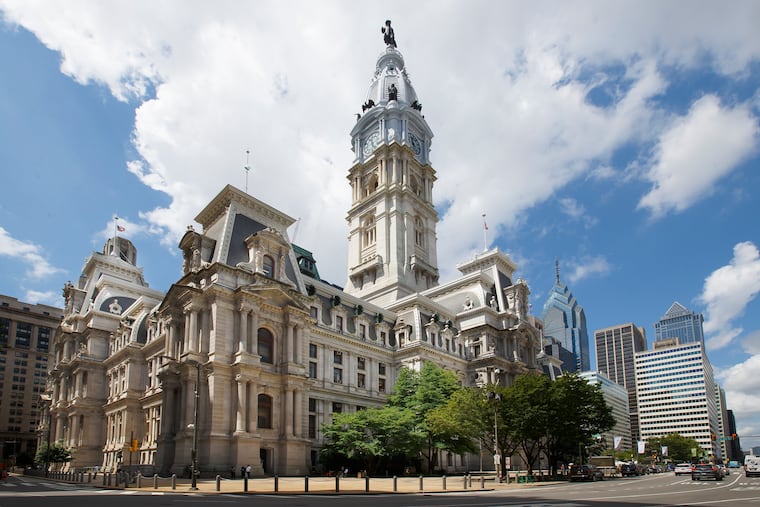How Philly is combating tax delinquency | Opinion
Philadelphia is no longer rife with property tax evasion.

Philadelphia sometimes has a hard time shedding the old, oft-repeated imagery associated with it. For example: the idea that most Philadelphians don’t pay their taxes and the city doesn’t do much about it. The reality is that last year, 96.1 percent of real estate taxes were paid on time, an all-time high.
Yes, the story on tax delinquency has changed. In a city with tremendous needs, including disadvantaged schools and stubborn poverty, every dollar due must be collected. Boosting on-time payments and reducing tax delinquency are essential to funding the services we rely on. Real estate tax delinquency declined by 37 percent in the last five years. More remains to be done, but the story that City Hall does a poor job collecting taxes is a fairy tale.
Our progress is the result of a strategy that balances consistent, meaningful enforcement with a robust safety net. Data show this is working. In 2013, there were 92,580 delinquent real estate tax accounts (just shy of one in five properties in Philadelphia), which owed over $225 million in principal from just the last 10 years. By June 2018, the amount due was down to $144 million from 66,491 properties. Of the $144 million, more than a third is already in a payment agreement.
The first part of this strategy is preventing delinquency before it happens, through better communications and customer experiences. We have expanded hours during tax season to include nights and weekends, and upgraded the phone system to shorten wait times. We’re sending notices and bills in plain language and in multiple languages. Our staff have received trauma-informed customer service training, an approach that brings awareness to the behavioral and emotional impact on people who have experienced psychological trauma such as exposure to physical violence or substance abuse, to help them better assist taxpayers who may have been exposed. We’re reaching people where they are, in person and online. We organized or attended more than 200 community events last year, unveiled easy and free online payment, and doubled down on fun and informative social media.
The second part is an expanded safety net to keep property tax bills affordable, particularly for homeowners. The discount for homeowners through the Homestead Exemption increased by 33 percent to $559 per year. For about 5,000 homeowners living in homes valued at $40,000 or less, enrollment in Homestead eliminated their bill. For all property owners who have fallen behind, flexible payment terms help them get back on track, and for those that are homeowners, the monthly payments are tied to income. We’re offering free housing counseling and have discounts for low-income seniors. We’re using behavioral economics, which explores the psychology of how people make decisions related to money, to increase enrollment and keep people in assistance programs.
The third, and final, part of the strategy is a data-driven approach to enforcement. We’re applying efficient and effective collection tactics tailored to the specific nature and history of the property. For example, a rental property with tenants will be flagged for the Sequestration program. A court-appointed receiver will collect rents, manage the property, and pay the bills, including back taxes, until the debt is gone. This protects the renters and recovers past-due taxes faster than a sheriff sale. For chronic late payers, we’re intervening earlier than in past years with notices and placement with collection agencies to nudge them to payment earlier. By leveraging new technologies and data analytics, we’re consistently applying the right tool, at the right time, to the right account to increase collections. Property owners are learning that failing to pay is no longer without consequence.
As 2019 real estate tax bills are mailed in the first two weeks of December, property owners can be confident that the overwhelming majority of their neighbors will be paying on time – and that they should too. For the small minority of you who don’t pay, know that the Department of Revenue will be coming for you, with either the relief you’re entitled to or – when appropriate -- tough enforcement.
Frank Breslin is revenue commissioner and chief collections officer for the City of Philadelphia.